SPECIFICANCER
The team that reshaped understanding of tissue specificity to pioneer novel combination therapies.Led by Professor Stephen Elledge (Harvard Medical School and Brigham and Women’s Hospital, USA) from 2019-2025.
Currently viewing section: The challenge
The challenge
In 2019, SPECIFICANCER set out to tackle the tissue specificity challenge.
The challenge was set in 2017 and in the 30 years prior, extensive research had identified hundreds of genes that, when mutated can cause cancer. Yet the vast majority of these genes only cause cancer in certain parts of the body but not in others – and we don’t know why.
By mapping our cells’ cancer drivers and their specificity to different tissues, the team aimed to shed light on why many of these mutated genes only cause cancer in select tissues while sparing others. The team hoped its work would change the way we think about cancer and ultimately allow the development of novel preventative measures, as well as therapeutic interventions specifically tailored to tumour type.
At a glance
Team and leadership
SPECIFICANCER was led by:
This multidisciplinary team of scientists from the UK, USA and the Netherlands brought together expertise spanning genetics, epigenetics, bioinformatics and cell biology to clinical research.
Tackling the tissue specificity challenge
It is well-established that specific mutations can give rise to different types of cancer. For example, mutations in the BRCA1 and BRCA2 genes are implicated in breast and ovarian cancer. These faulty genes are present in nearly all cells within the body, however, despite decades of research, when the challenge was set the mechanisms underlying the tissue-specific manifestation of these cancer-causing mutations remained enigmatic.
SPECIFICANCER hypothesised that the ground architecture of a particular tissue, its epigenetic landscape laid down during development, determines the tissue specificity of cancer driver genes. The team focused its work on some of the most potent tissue-specific oncogenes, from the RAS/MAPK, WNT/β-Catenin, and EZH2/Polycomb pathways.
Over the course of its funding, the team has uncovered novel and important insights, demonstrating the role of the epigenetic environment in dictating tissue specificity. The team has also highlighted the complexity of the challenge and while there may not be an overall generalisable mechanistic principle, SPECIFICANCER’s work has helped to understand what makes a tissue permissive or not.
Tools and technologies
Along the way SPECIFICANCER developed many tools to help decipher the rules of tissue specificity, that it has made open to the scientific community. The team established KaryoCreate, a CRISPR based approach to enable the study of chromosome-specific aneuploidy, KaryoTap, to allow high throughput aneuploidy detection within tumours from single-cell sequencing data and MuSiCal, for improved mutational signature analysis.
The rules of RAS
The SPECIFICANCER team has made significant progress in exploring tissue specificity of different KRAS mutant alleles, including identifying allele and tissue-specific genetic dependencies. The overall rule that the team’s work highlighted is for a tissue to be permissive to RAS, cells must be capable of handling a proliferative signal and therefore MYC must also be present, with RAS regulating MYC stability to allow this.
The team showed in colorectal cancer how KRAS upregulates translation, both bulk and mRNA specific, via the MNK/eIF4E pathway, resulting in increased levels of MYC. This work also identified the potential for MNK inhibition to sensitise KRAS mutant colorectal cancers to mTORC1 inhibitors.
Unlocking Wnt permissivity
For the WNT pathway, the team has shown further levels of tissue specificity - not only in pathway dependency itself, but in the specific genes used to activate the pathway. SPECIFICANCER identified zonal differences within the liver which determine the ability of Wnt to drive tumorigenesis, with Wnt-driven differentiation being incompatible with tumour formation. This highlights the need for just the right amount of Wnt signalling and explains the differential effects of APC, β-catenin or Axin mutations, given they lead to differing levels of pathway activation.
SPECIFICANCER uncovered that Apc-mutant stem cells in the intestine secrete the WNT antagonist NOTUM, which suppresses WNT signalling in neighbouring wild-type cells and enables mutant clones to dominate, identifying NOTUM as a potential target for colorectal cancer prevention.
Inventive screens uncover immune role
By performing CRISPR screens in vivo, in mouse models with an intact immune system, SPECIFICANCER uncovered insights into the role of the adaptive immune system in driving tumour suppressor inactivation. This inactivation occurs in a tissue specific manner and is key in allowing tumours to avoid immune detection.
Oestrogen drives oncogene amplification
In breast cancer, the team identified the mechanisms underlying how oestrogen regulates focal amplification to drive oncogene expression, via oestrogen receptor associated translocations. The team hypothesizes that tissue specificity of the oestrogen receptor to drive cancer cell proliferation is defined by oestrogen receptor binding site accessibility.
Identifying tissue specific therapeutic vulnerabilities
The team has gone on to demonstrate that targeting both epigenetic and tissue-specific oncogenic pathways can drive differentiation to enable the hijacking of tissue-specific cell death pathways. SPECIFICANCER has shown in pre-clinical models that EZH2 inhibition cooperates with AKT inhibition in TNBC and RAS pathway inhibition in colorectal cancer, with both cell death pathways converging on pro-apoptotic protein BMF.
In blood cancer, the team has further shown the promise of epigenetic rewiring, in this case demonstrating the combined promise of two epigenetic regulators, EZH2 and DOT1L, in treating B-cell lymphoma. The team demonstrated that mechanistically this inhibitory combination ultimately results in B cell differentiation. The team has more work to come in other tissue types, which reinforces the paradigms that govern tissue specificity.
Decoding taxane sensitivity
In triple negative breast cancer (TNBC), by integrating proteogenomics with functional genetics the team identified that inactivation of the tumour suppressor PTPN12 drives chromosomal instability. Through this work the team uncovered why some TNBCs are sensitive to taxanes and microtubule targeting agents, a standard of care for TNBC, identifying options to select for those patients who will respond. By identifying the underlying mechanism, the team has also opened the possibility of developing selective therapies.
Looking ahead
The team has already uncovered the molecular mechanisms behind many tissue specific cancer drivers, with more work still to be published in further tumour types. The tools, technologies and resources the team has developed and made available to the scientific community, ensure its legacy will continue to grow.
Beyond its fundamental discoveries, SPECIFICANCER has gone on to demonstrate that manipulating cell states opens up therapeutic opportunities and revealed unexpected tissue specific synthetic lethalities. The team is currently working with clinical colleagues and companies to develop multiple clinical trials, to translate its findings into better outcomes for patients. The teams work also inspired Cancer Grand Challenges to set the rewiring cancer cells challenge in 2025.
Featured publications
- The origins and genetic interactions of KRAS mutations are allele- and tissue-specific - Nature Communications
- Tissue-Specific Oncogenic Activity of KRASA146T - Cancer Discovery
- Oncogenic K-Ras suppresses global miRNA function - Molecular Cell
- Accurate and sensitive mutational signature analysis with MuSiCal - Nature Genetics



